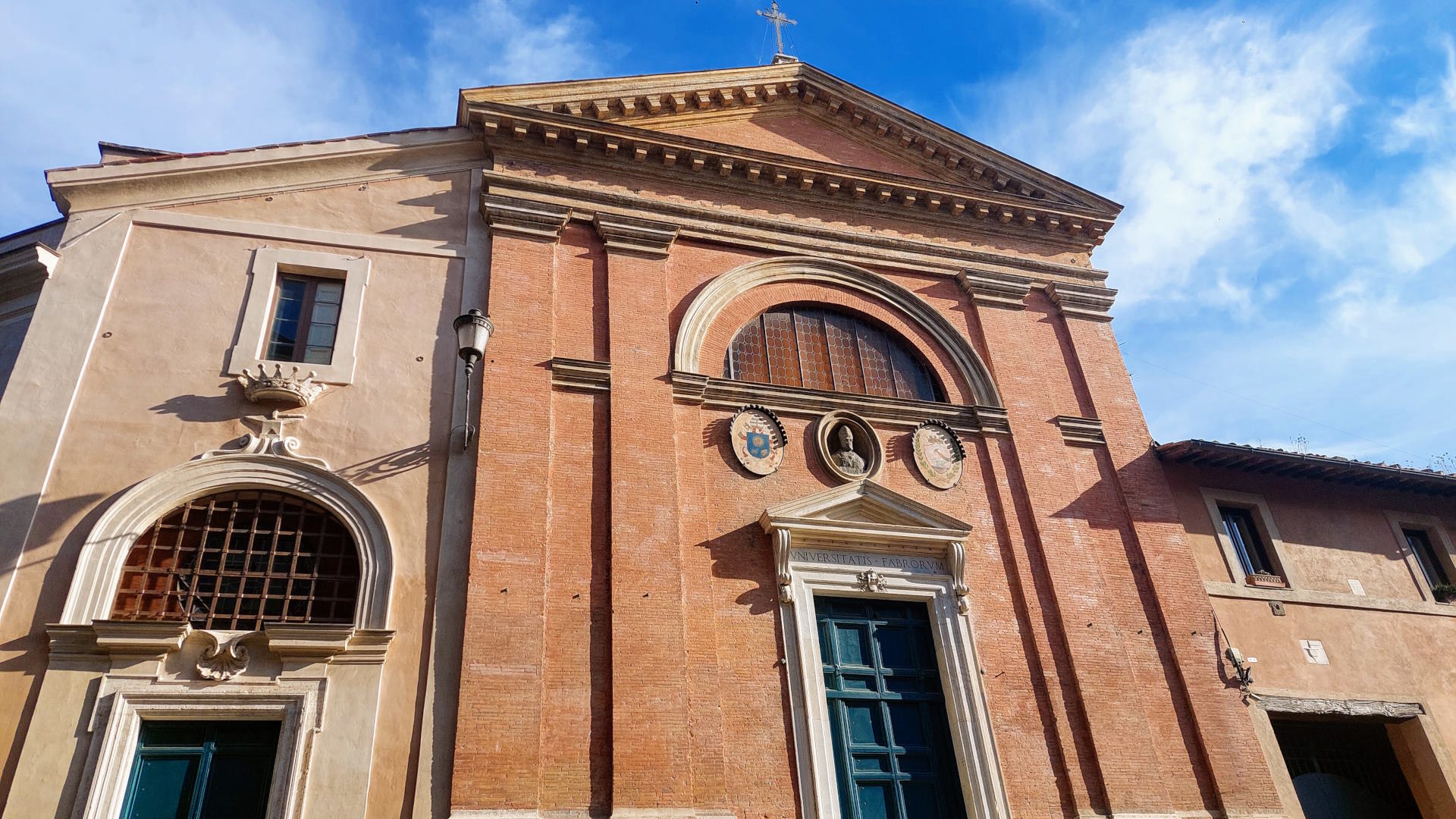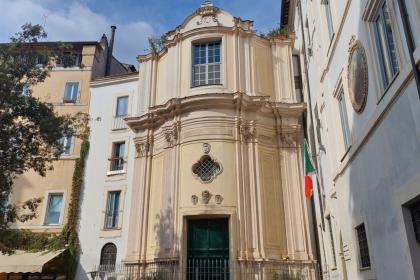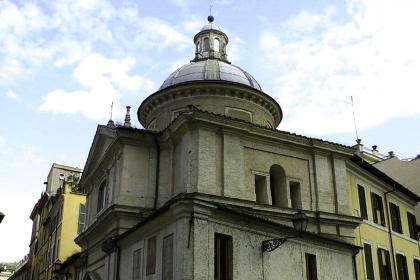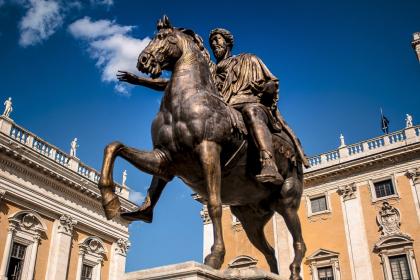
In medieval Rome, goldsmiths, blacksmiths and farriers were part of one large guild: their patron was St. Eligius, bishop of Nojon, who in his life had also been a farrier, royal goldsmith, and mint director. The three “professions” had already formally divided in the early 15th century, but their destinies finally parted a century later, when the goldsmiths entrusted Raphael with the design of Sant’Eligio degli Orefici, along the elegant Via Giulia, while the “ferrari” or metalworkers moved to the Rione Ripa, between the slopes of the Capitoline Hill and the Palatine. Here the new confraternity had the two small, older churches of San Giacomo d’Altopascio (mentioned as early as 1302) and San Martino (first mentioned in the late 12th century) torn down to finally build a church of its own.
Also known as the church of “Sant’Alo” or “Sant’Anigro”, like other guild churches Sant’Eligio dei Ferrai has an aisleless nave with a small apse, sloping roof and bell gable. However, the current appearance of the church derives from the numerous restorations and re-fittings that took place between the end of the 17th century and the 18th century due to the initiative and passion of the corporations of artisans who adhered to the confraternity (key-makers, gunsmiths, sword-makers...). The masonry façade, with double pilasters on the sides, is the result of restoration work carried out between 1903 and 1905. In a niche above the gable was placed the 17th-century bust of St. Eligius. On the wall to the left of the façade is a portal with a large window surmounted by an anvil and hammer, emblems of the metalworkers’ coat of arms.
The simplicity of the façade contrasts with the richness of the interior, decorated with sumptuous polychrome marble, elegant inlays, gold and stucco work. The spectacular coffered ceiling, dated 1604, has the coat of arms of the confraternity and the inscription universit/atis / fabrorum /anno/domini/MDCIIII in the center. The most noteworthy works include a polychrome wooden statue depicting St. Anthony Abbot, made in the first half of the 17th century; the “Ascent to Calvary”, what remains of a rare mannerist fresco found in 1989; and, at the high altar, the Madonna and Child with SS James, Eligius and Martin painted by Girolamo Siciolante da Sermoneta (late 16th century).
Attached to the church is the Museum of the confraternity, with objects from the liturgical furnishings and reliquaries , including an arm made of silver, brass and semiprecious stones containing the relic donated by Noyon Cathedral in 1619. The confraternity is still active today and maintains its headquarters in the same architectural structure.
Photo turismoroma
Seven Roman guild churches

Rediscovering ancient arts and craft, stories and traditions with the guild churches
The Church of Sant'Eligio degli Orefici

 Condividi
Condividi
The Capitoline Hill: a place of legends

The Forum Boarium

 Condividi
Condividi
Information
For the timetable of the masses and visiting conditions, please consult the contacts.
 Condividi
Condividi
Location
To find out about all accessibility services, visit the Rome accessible section.












































